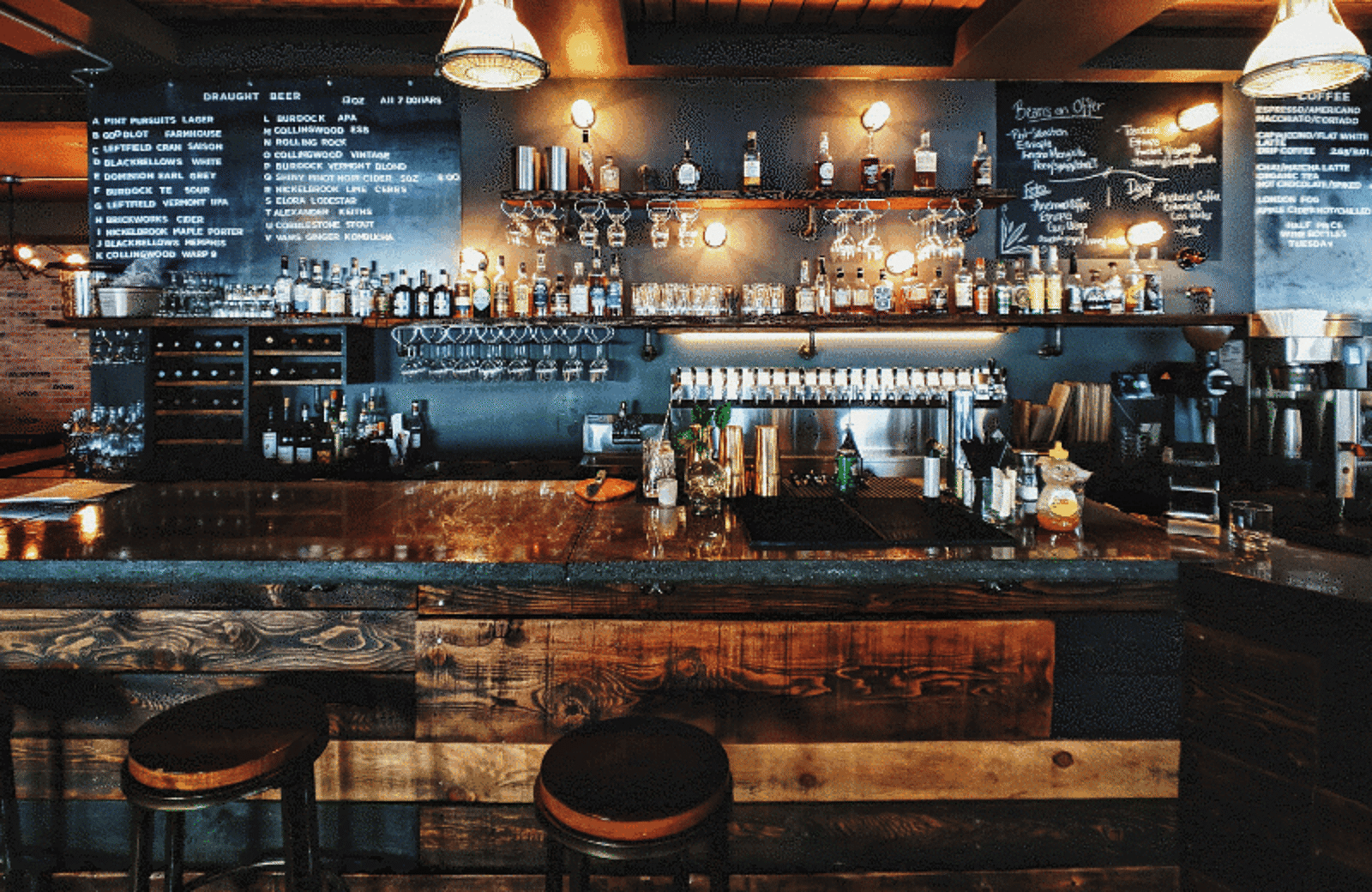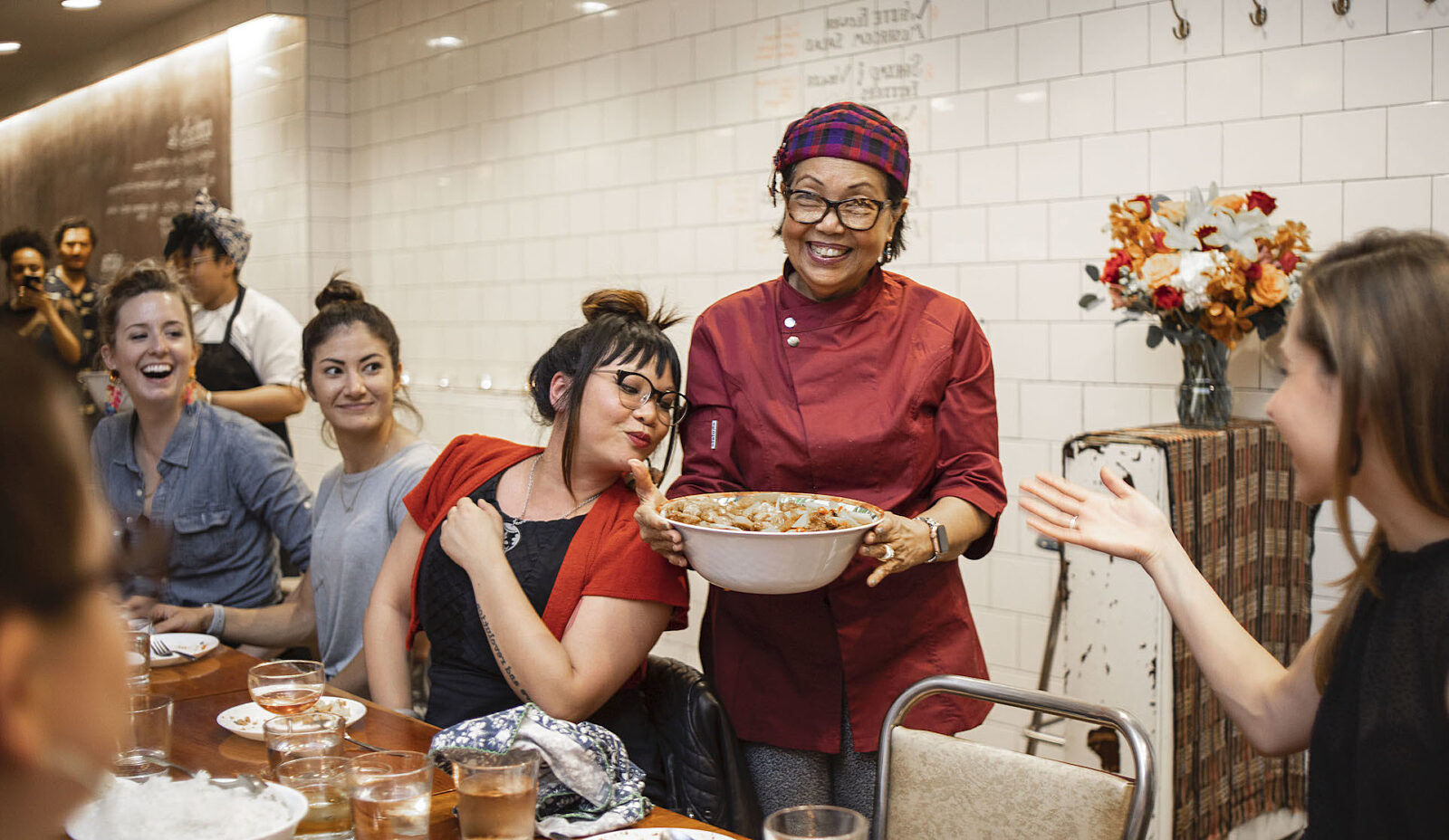
Thamee Is Closed, but They're Saving up and Giving Back
The trio behind D.C.'s Thamee applied for every loan and grant they could find. Now, they're giving back to their community until it's safe to open their doors again.

Vidya RaoAuthor
Earlier this year, the trio behind D.C.’s breakout star restaurant, Thamee, were riding high.
Thamee was a James Beard semifinalist for Best New Restaurant and had received numerous other accolades from the press, including being named Eater DC’s 2019 Restaurant of the Year. Open just 10 months, the city’s only Burmese restaurant had solidified its place in the community with a loyal fanbase.
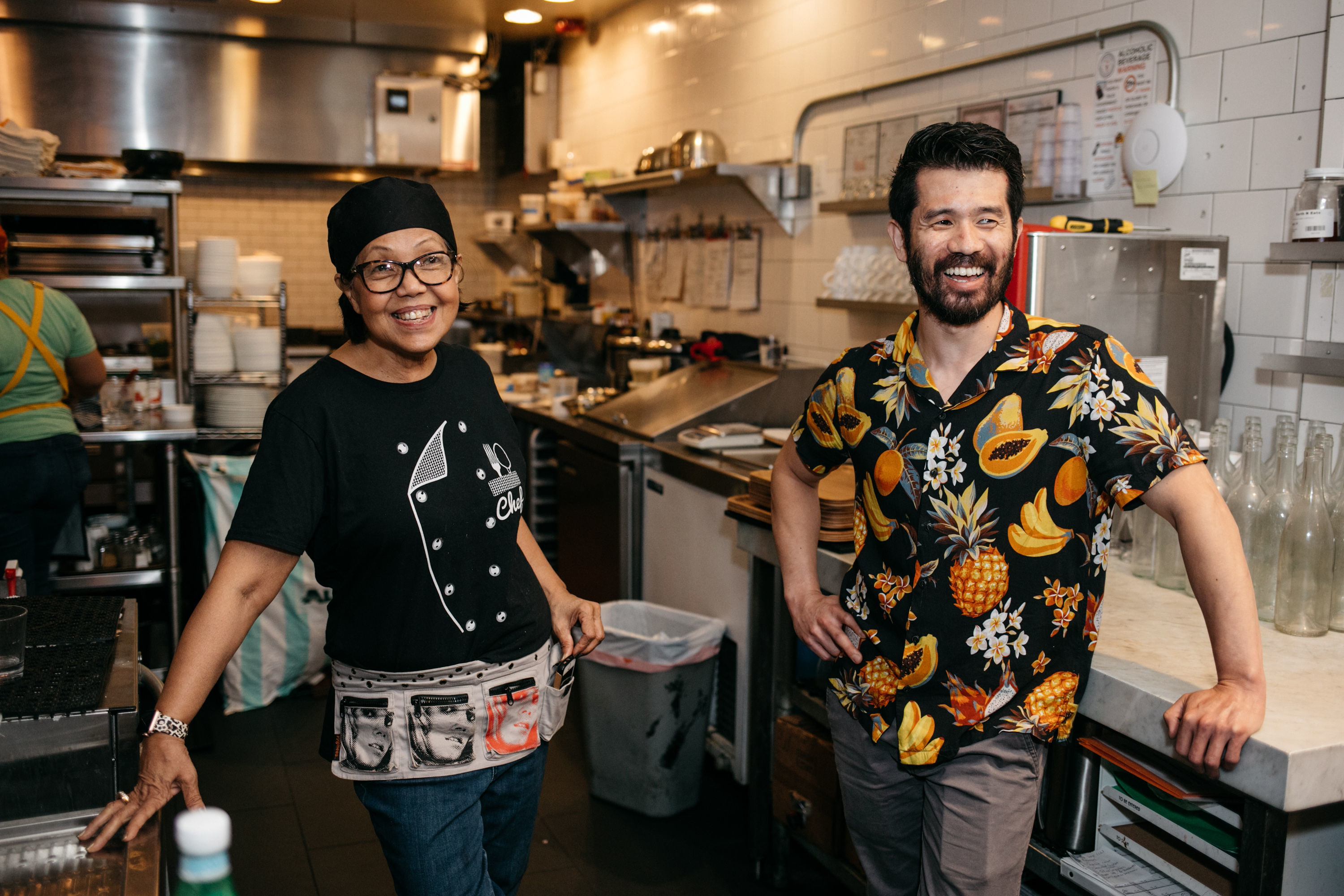 Image courtesy of Mariah Miranda.
Image courtesy of Mariah Miranda.
It would have been impossible to imagine that just three weeks later, their doors would be closed and they’d be letting go of their 28-person team.
“We were just enjoying this amazing climb in the food industry, and it was so exciting because we had the entire community rooting for us,” says Jocelyn Law-Yone, Thamee’s chef and co-owner. Now, in the midst of a global pandemic, she says every day “is like trying to run a marathon in a mudslide.”
Making Money by Saving Money
Law-Yone and co-owners Simone Jacobson and Eric Wang agreed pretty quickly to close the restaurant entirely, rather than staying open for delivery and takeout. Firstly, at 67 years old, Law-Yone is more susceptible to COVID-19. Secondly, they agreed that operating their restaurant in a pandemic would create a trade-off that just didn’t add up for them.
By choosing to close for the foreseeable future, “Our employees did not have to risk their lives just to come into work, to make a minimum wage,” Wang says. “It was a difficult conversation but there was so much we didn’t know. We still didn't even know if asymptomatic people could pass the virus, right? Making just enough money to cover rent and whatever else was just not worth it for us if we were putting our employees at risk.”
Instead, Wang, who handles the financial side of the business, focused on “making money by saving money.”
He negotiated with the restaurant’s landlord to defer rent payments; he saved $700 a month by canceling Thamee’s liquor liability insurance; he saved $800 a month by canceling workman’s comp; and he was able to negotiate down vendors.
Cracking the Code to Grants and Loans
Then, Wang poured his energy into applying for grants and loans. Both Jacobson and Wang’s previous careers involved proposal and grant writing, so they had some familiarity with the process.
Wang eventually secured several grants and loans from Bumble, Gingerbread Capital, DC Small Business Recovery Microgrant, and Restaurant Association Metropolitan Washington, as well as a Payment Protection Program (PPP) loan and Economic Injury Disaster Loan (EIDL) from the government.
“I applied to absolutely every grant and forgivable/low-interest loan I could find and that we qualified for,” said Wang. “It was 50% luck and 50% due diligence.”
But Wang’s impeccable organization was key to Thamee’s success in getting funds, particularly the PPP, which has been a confusing process for many. So how did he do it?
Wang created a “compliance matrix,” or detailed checklist for the PPP to make sure that there wasn’t any mistake on the forms and documents he submitted. He was able to export labor expenditure calculations from Gusto, Thamee’s payroll processor, which created a new report for businesses applying for PPP loans. Because most funding organizations ask for similar information, like annual revenue, number of employees, and legal and tax documents, Wang suggests maintaining a digital document or folder with all of that information so it’s easily accessible.
“Read every line item and every sentence in the grant/loan announcement, instructions, and application,” Wang added. “Within those documents, you will find what the funding organization is looking for, in terms of the type of business they want to give money to. Make a list that organizes all those qualifying factors in a way that makes sense to you, and have an answer for every line item.”
Additionally, Wang says, don’t be afraid to reach out for help if you’re confused, as there are community organizations and other restaurateurs who may be able to advise you. Then, pay it forward and help others as they’re going through the process.

Taking Care of Former Employees
That ethos of helping others is one that Thamee embodies in all areas of the business. While Wang was working on the finances, co-owner Simone Jacobson prioritized helping their former employees get on unemployment. As a result, every single former Thamee employee was able to get unemployment benefits within a month of being laid off, which is a real feat considering the chaos unemployment offices were experiencing around the country at the time.
The team also continued to provide health insurance for their former full-time employees.
“Some of them really needed it because they have chronic health issues and they need to go to the doctor for regular checkups,” Wang explains. “This is a health crisis. It would be inhumane time to tell them they’re losing health insurance too. We looked at the money that we had left in our bank account and did some budgeting so we could provide at least two months of health insurance for those already covered by us. If I had to, I probably would've dug into my own savings to pay for it.”
That close-knit relationship with former staff has continued, proving to be a much-needed respite from the pandemic.
“The best thing we did was start a group chat with [our former employees],” Law-Yone recalls. “I immediately started cooking from home and sharing it. Then they started showing me what they were cooking and we’re all getting competitive. We share jokes, talk about what’s going on. A lot of them are still active on it, and it’s been a really nice way to stay connected.”
Pivoting to Community Care
Thamee’s doors remained closed to customers from mid-March to the end of June, and they don't plan to reopen for full-service dining until they feel it’s safe to do so. Rather than dwell on the negative, they first pivoted to caring for the community that has been so supportive of them, and only recently launched a series of new initiatives, including a hybrid of takeout, meal kits, and more.
“As soon as we were able to get four people into the building, we decided to create the community kitchen,” Law-Yone says. “We knew we wanted to give back.”
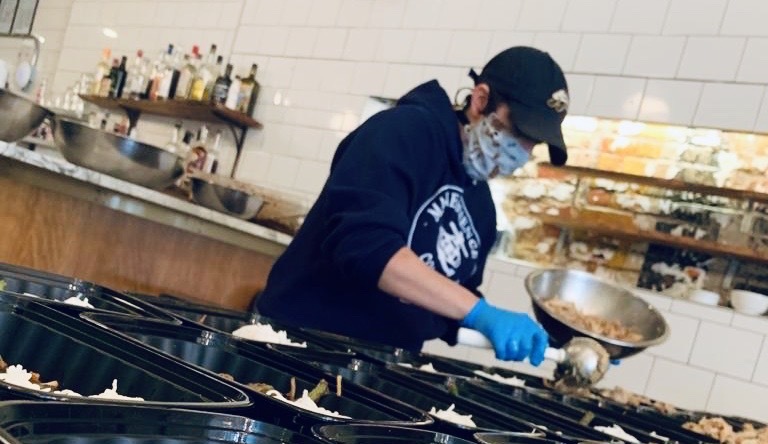
Since May 4, 2020 Thamee has partnered with World Central Kitchen and donated thousands of meals to people in need, including the healthcare staff at the D.C. jail, other frontline workers, and Black Lives Matter protestors. A few staff came back to Thamee to work the kitchen, with Law-Yone giving them instructions remotely.
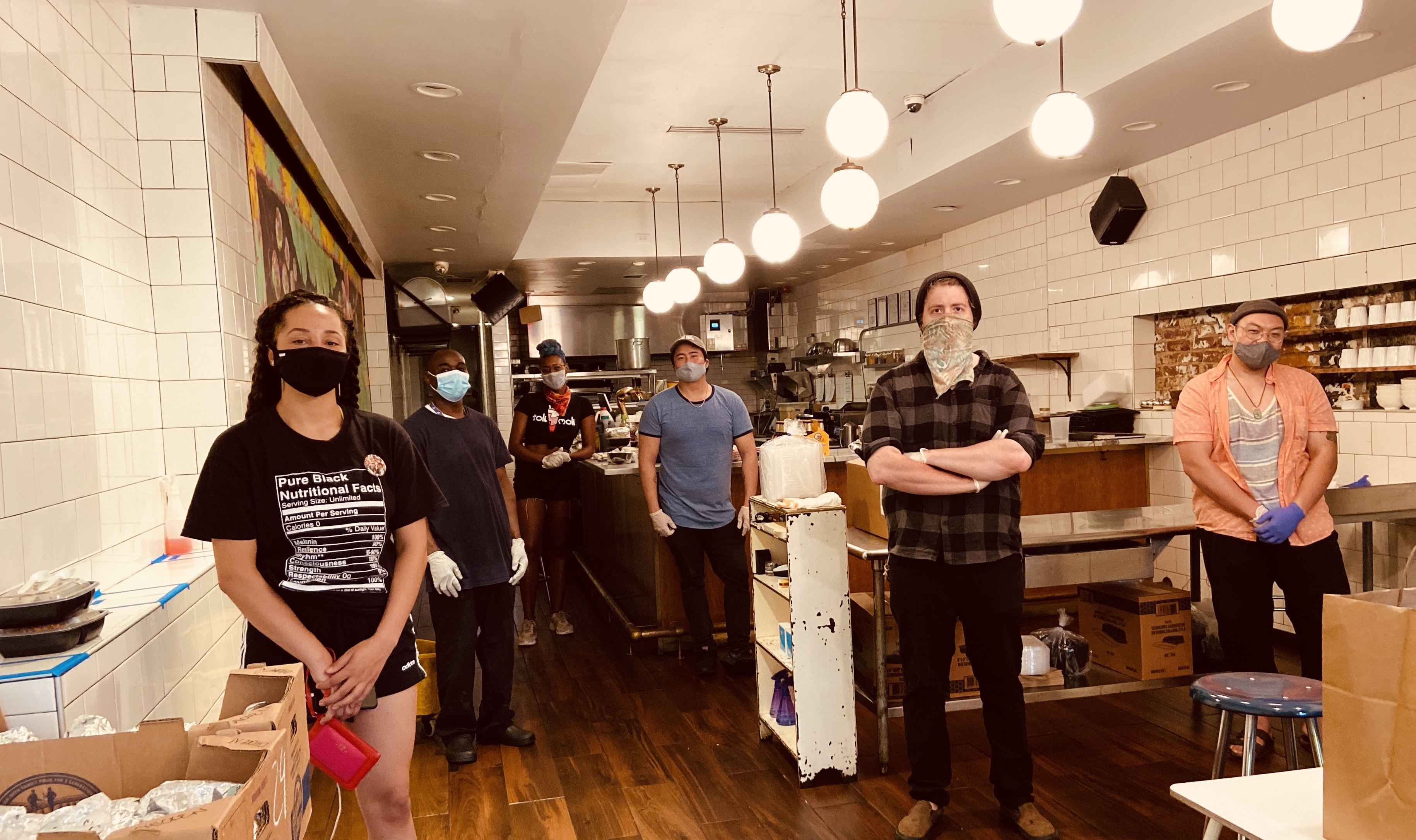 Image courtesy of Thamee.
Image courtesy of Thamee.
“I'm trying to get through to them by phone — what needs to be ordered, what needs to be cooked, sending photographs back and forth to see what the dishes look like and give approvals,” Law-Yone explains. “This business has never been for the faint of heart, but this is a million times more complicated. I’m really proud of what they’ve been able to accomplish.”
This dual public health crisis of coronavirus and racial injustice has highlighted the fact that we also have a crisis of equity among people who are deemed essential workers in our society, but who we still refuse to pay an essential workers’ wage. We have completely changed how we compensate people with our Flat30 Initiative. The opportunity is now.

Eric Wang
Co-Owner of Thamee
Thamee has taken a strong stand in support of the Black Lives Matter movement, using their platform to amplify Black voices and partnering with Dreaming Out Loud, Bakers Against Racism, and Back to Black to raise money for anti-racist causes and Black-led organizations that serve marginalized communities.
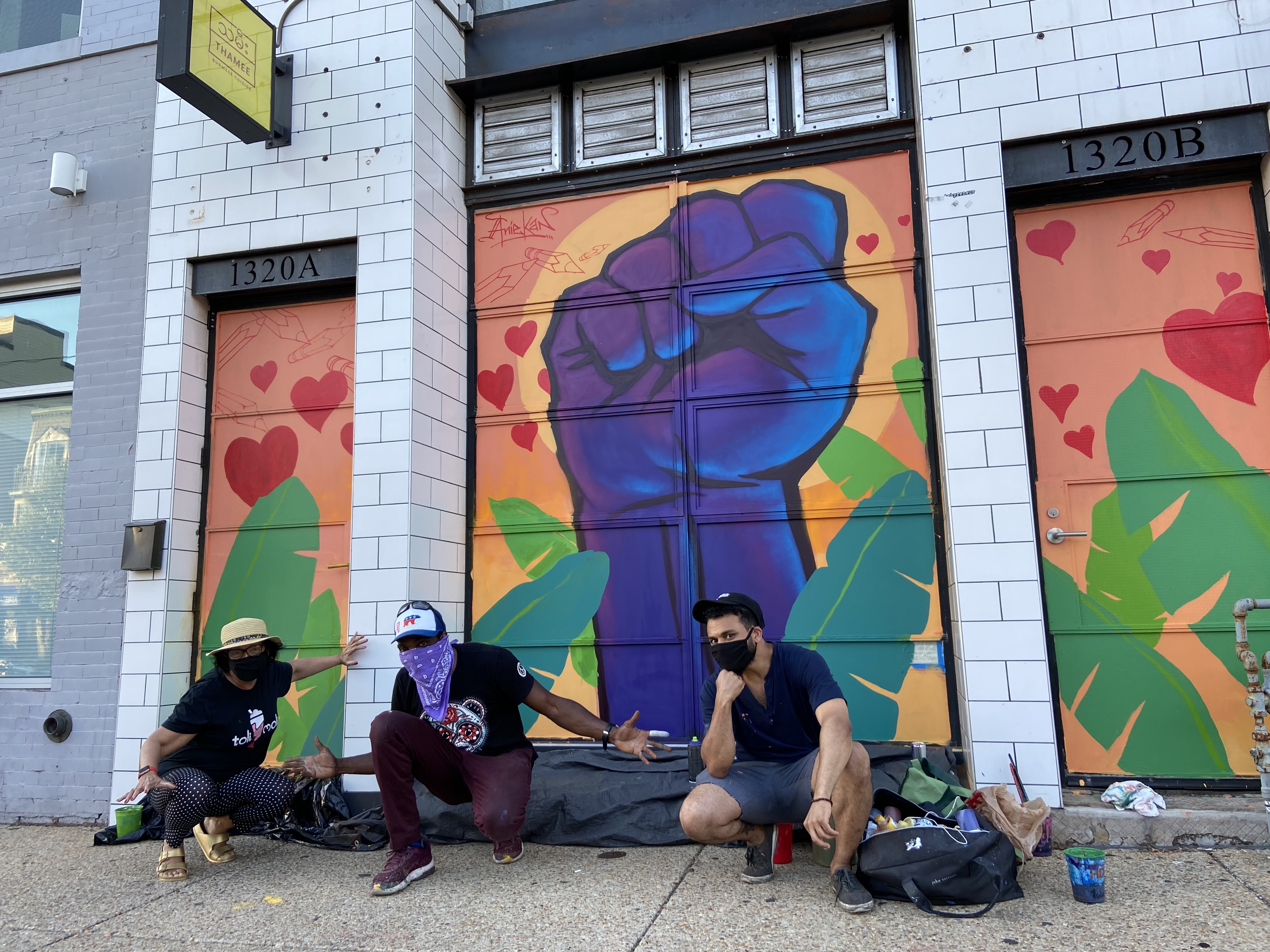 Chef Jocelyn Law-Yone, mural artist Aniekan Udofia, and Thamee Beverage Director, Richard Sterling, outside of Thamee. Image courtesy of Thamee.
Chef Jocelyn Law-Yone, mural artist Aniekan Udofia, and Thamee Beverage Director, Richard Sterling, outside of Thamee. Image courtesy of Thamee.
This isn’t just a short-lived endeavor. Thamee plans to make community care central to their work — and to bring that same mission to how they operate their own restaurant when it reopens. Wang says they’ll be eliminating the tipping structure to create more parity between back-of-house employees and front-of-house employees as part of their Flat30 Initiative.
"This dual public health crisis of coronavirus and racial injustice has highlighted the fact that we also have a crisis of equity among people who are deemed essential workers in our society, but who we still refuse to pay an essential workers’ wage," Wang says. "We have completely changed how we compensate people with our Flat30 Initiative. The opportunity is now."
Is this article helpful?
DISCLAIMER: This information is provided for general informational purposes only, and publication does not constitute an endorsement. Toast does not warrant the accuracy or completeness of any information, text, graphics, links, or other items contained within this content. Toast does not guarantee you will achieve any specific results if you follow any advice herein. It may be advisable for you to consult with a professional such as a lawyer, accountant, or business advisor for advice specific to your situation.
Read More
Subscribe to On the Line
Sign up to get industry intel, advice, tools, and honest takes from real people tackling their restaurants’ greatest challenges.


